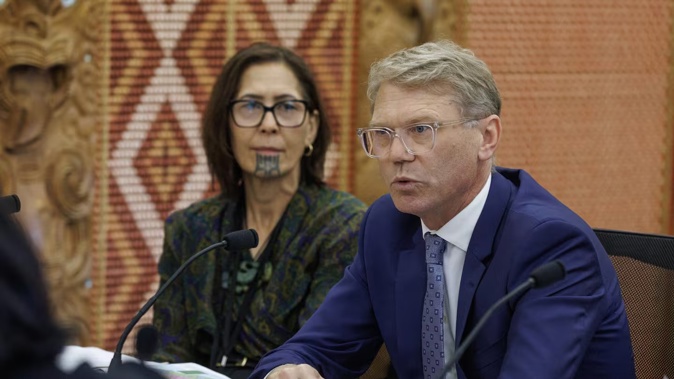
Treaty Negotiations Minister Paul Goldsmith says the Government will not agree to Treaty settlements that dispute whether the Crown is now sovereign.
Goldsmith made the comments to the Māori Affairs select committee this morning amid ongoing negotiations with East Coast iwi Te Whānau-ā-Apanui and hopes a settlement can be reached with the country’s largest iwi, Ngāpuhi.
Under the previous Labour Government, an initial deed of settlement with Te Whānau-ā-Apanui was drawn up.
It includes the first case of a clause agreeing to disagree on who holds sovereignty.
The 12 hapū of Te Whānau-ā-Apanui are based in the eastern Bay of Plenty with an area of interest spanning approximately 190,000ha between Hāwai and Pōtikirua.
The deed notes Te Whānau-ā-Apanui consider they are a sovereign nation that never ceded sovereignty to the Crown and retain that sovereignty today, while the Crown considers its sovereignty today as incontrovertible.
The differing views are not reconciled in the deed and nothing in the deed is to be taken as the iwi relinquishing that sovereignty.
Goldsmith said the Government is uncomfortable with this agree-to-disagree clause and it is not prepared to progress the settlement without that being removed.
“It makes it difficult in the sense that you’re signing up to a full and final settlement, but the entity fundamental doesn’t acknowledge the authority of the Crown to do it in one respect, and we weren’t comfortable with that," he says.
“The Crown’s position is clear; the Crown is sovereign. The Crown is simply the representation of the democratic will of the people of New Zealand.”

Treaty Negotiations Minister Paul Goldsmith at the select committee hearing at Parliament. Photo / Mark Mitchell
Goldsmith’s office confirmed this approach would be applied to any settlement negotiated under this Government. This is believed to be the first time an iwi has included such a clause.
Former Treaty Negotiations Minister Andrew Little, who led negotiations with Te Whānau-ā-Apanui on behalf of the Crown, told the Herald removing the agree-to-disagree clause on who was sovereign was not needed.

Former Treaty Negotiations Minister Andrew Little. Photo / Colin McDiarmid
“It’s disappointing because it is unnecessary. The Treaty settlement process is about getting the relationships back on foot [between Crown and iwi] and no one loses anything by including the agree-to-disagree clause the minister wants to remove.
“The Crown’s position on whether or not sovereignty was ceded is perfectly credible, but it is not going to be agreed to,” Little said, adding that such conversations could be continued outside of settlement negotiations.
“Right now, the critical thing is to restore to the best extent we can some of the economic base that was lost through colonisation.”
Julia Gabel is a Wellington-based political reporter. She joined the Herald in 2020 and has most recently focused on data journalism.
Take your Radio, Podcasts and Music with you









